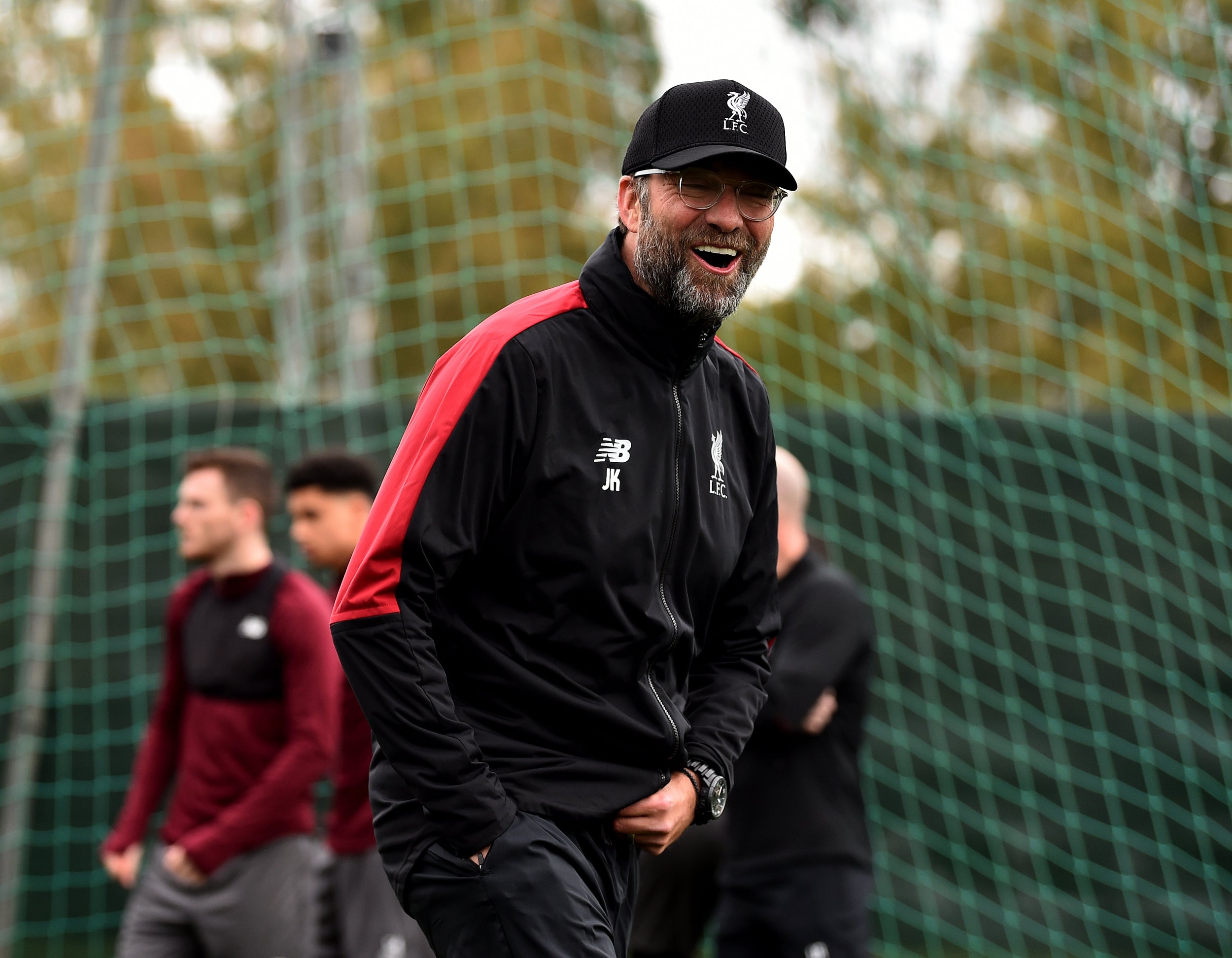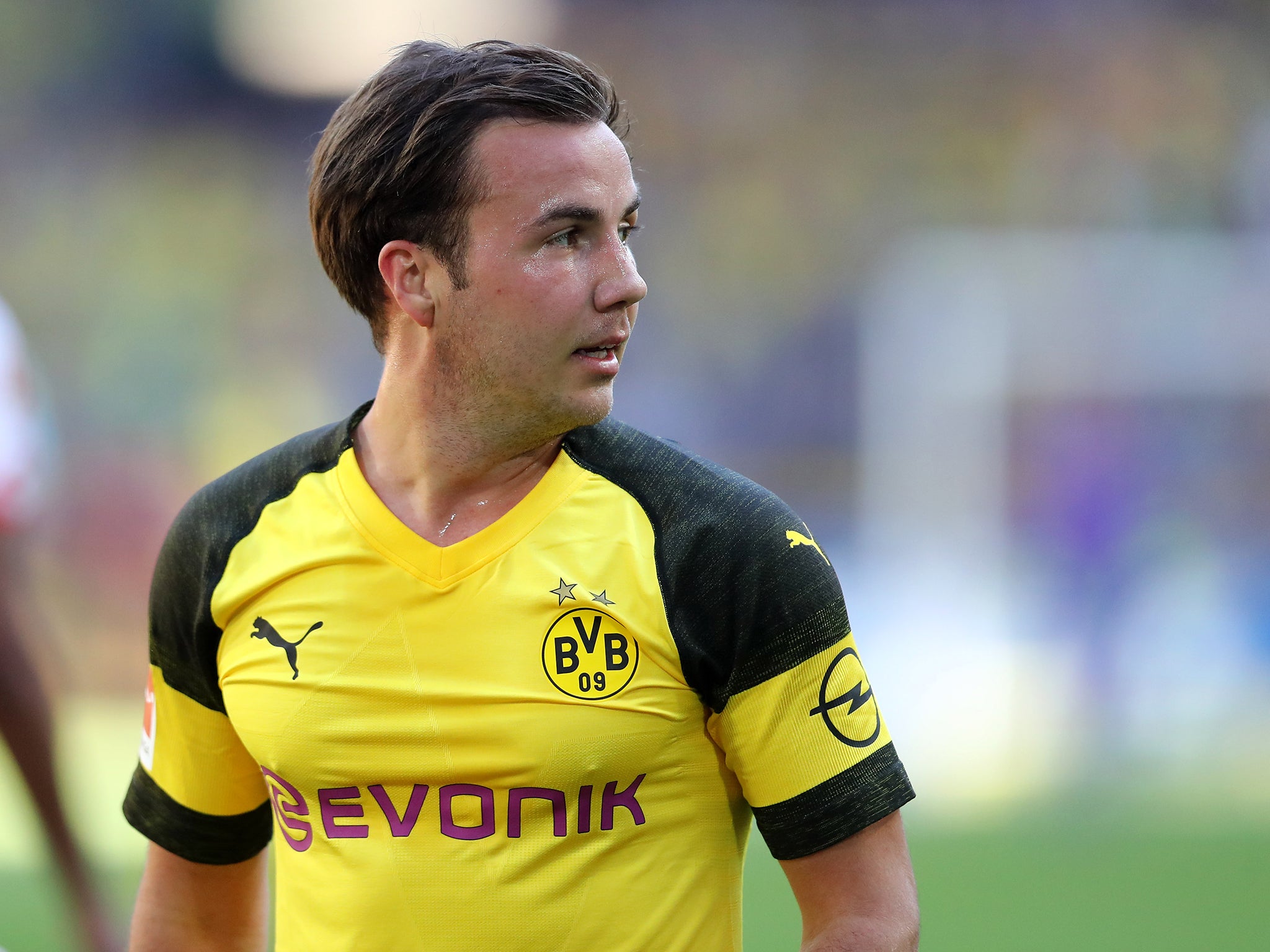Liverpool vs Bayern: German giants represent everything Jurgen Klopp isn't in Champions League clash
The former Borussia Dortmund boss suffered at the hands of Bayern's immense power and financial muscle during his time in the Bundesliga

Your support helps us to tell the story
From reproductive rights to climate change to Big Tech, The Independent is on the ground when the story is developing. Whether it's investigating the financials of Elon Musk's pro-Trump PAC or producing our latest documentary, 'The A Word', which shines a light on the American women fighting for reproductive rights, we know how important it is to parse out the facts from the messaging.
At such a critical moment in US history, we need reporters on the ground. Your donation allows us to keep sending journalists to speak to both sides of the story.
The Independent is trusted by Americans across the entire political spectrum. And unlike many other quality news outlets, we choose not to lock Americans out of our reporting and analysis with paywalls. We believe quality journalism should be available to everyone, paid for by those who can afford it.
Your support makes all the difference.It was the small hours in Kiev and though he had lost the Champions League final to Real Madrid, Jurgen Klopp was wearing his cap back to front and singing along with a man in a Liverpool shirt whose nickname might make you think first of cabaret.
Andreas Frege – or Campino as he is known – was born in Dusseldorf but his mother was English. He had fallen in love with the club Klopp now managed after Borussia Monchengladbach were beaten in the Uefa Cup final of 1973. Football was Campino’s passion but his talent was in music and Klopp became a fan of his group, Die Toten Hosen – translated directly as ‘The Dead Pants.’
Campino believed in punk rather than floorshows. His band did not exist solely to promote causes but were prepared go that way. Though not associated with any political party, The Dead Pants have made stands against xenophobia and racism, they supported Greenpeace in a campaign to end nuclear testing and had once posed without clothes in the name of animal rights group, PETA.
Amongst their later initiatives related to Bayern Munich’s domination of German football, releasing a song in 2000 spiked with antipathy. In ‘Bayern’, Campino would yell: “Many things can happen/Many things can come to pass/One thing I know for sure. Never in my life would I go to Bayern! (Never go to the f**king Bayern!).”
A reaction was projected and a rebuke, perhaps, intercepted because in the closing stages of that video, a portly figure in club blazer loomed into view. It was supposed to be Uli Hoeness – the president of Bayern – who looked into a television screen, and after hearing the lyrics muttered instantly to himself: “This is the kind of filth that will choke our society at some point.”
It has been said that Bavaria has the wealth of Hertfordshire and the attitude of Yorkshire. It annoys those outside the region that it seems to consider itself as a moral base, where intentions, standards and achievements cannot be seriously questioned, certainly not without a ferocious response.
Klopp, of course, faces the institution he went up against when he was coach of Borussia Dortmund for the first time in a competitive match since taking over at Anfield, not just on just sporting terms but on a spiritual level as well. While it is assumed outside Germany that Klopp will eventually find his way to Munich as a coach, see who he associates with and understand his history by listening to those that know him well and it appears less likely, though not impossible.
The story about Klopp being considered by Bayern eleven years ago is well known. It was Hoeness, in fact, who wanted Klopp the most, telling the other board members: “I’ve got a good feeling about this guy.” It was Hoeness too who called Klopp first, a manager who in his seven seasons at Mainz had achieved promotion and European football as well as relegation. Karl-Heinz Rummenigge, Bayern’s chairman, feared that at 40 years old, he was not experienced or high-profile enough. Instead, Bayern went for Jurgen Klinsmann – a national hero and a Bayern legend – who was sacked nine months later, with Philipp Lahm revealing that players felt unsure what to do under Klinsmann and often met to discuss tactical strategy because so little information was forthcoming from their coach.

Jurgen Klopp jokes in training as Liverpool prepare for Bayern (Liverpool FC via Getty)
In Raphael Honigstein’s book, Bring the Noise, it was Hoeness who called Klopp again, two days after their initial conversation with the news, “We’ve gone for the other Jurgen.” Klopp, according to Mainz’s sporting director Christian Heidel, “was a little hurt” by the suggestion that Klinsmann was similar to him when Klopp was clearly the more experienced club coach and later that day, the local reporter in the town could remember him taking training in a bad mood. That the approach became public knowledge through Hoeness was a good thing for Klopp, however, because everyone now knew how highly he was regarded.
Hoeness admitted, “We signed the wrong Jurgen,” when three years later Klopp led Dortmund to the first of successive Bundesliga titles. In 2011, Bayern finished third – ten points behind, though perhaps the bigger achievement was the defence of their title twelve months on when a more competitive Bayern came back at them but still finished eight adrift.
The atmosphere between Klopp and Bayern changed when Bayern signed some of Dortmund’s best players and wrestled back the initiative. Klopp would then compare them to a James Bond villain hell-bent on global domination, saying they were “like the Chinese – they see what other people are doing and copy it – just with more money,” he said after losing the German Cup final to Bayern in 2013.
This argument was engulfed two years later when Matthias Sammer – a former Dortmund player and manager and now in his position of technical director at Bayern, indicated that he believed other clubs were not working hard enough to compete with his new employer. Klopp pounced: “If I were him, I’d thank God that someone had the idea of hiring me every time I walk into the Bayern training ground,” he fired back. “I don’t know if Bayern would have got one less point without Sammer.”
When asked to recall the period, Jorg Jakub, the editor of Kicker magazine, described Klopp as being “like a new boxer in the ring, though he was not just about words – he’d already backed it up.”

Few managers, presidents and certainly players had the courage to criticise Bayern publically with such provocation before, knowing what follows whenever this happens: with Bayern hitting back ten times harder.
An example of this only came last week when Dietmar Hamann told Sky TV in Germany that Robert Lewandowski had lost his edge. The striker’s agent was the first to respond with Maik Barthel questioning Hamann’s “tactical understanding”, before Lewandowski called Hamann’s comments “flat-out stupid.” It was only after he scored in a 3-1 victory over Schalke that Hasan Salihamidzic weighed in to the debate, with the club’s latest sporting director claiming Hamann was waging a campaign against the player, describing the former Liverpool midfielder as “a problem” for the television company.
In 2014, Lewandowksi became one of the players Klopp lost to Bayern, though it was the transfer of Mario Gotze that hurt him the most. “It was not just the manner, it was the mere fact it could actually happen,” one source told the Independent, who spoke about Klopp’s reaction to the news, comparing it to the unexpected death of a young family member. “Klopp thought Bayern’s tentacles stretched far but not that far.”
In Building the Yellow Wall, Uli Hesse remembered the press conference ahead of Dortmund’s match with Mainz in 2013 when Klopp knew Gotze was going to leave but nobody else in the room did. It was one of the occasions Klopp showed restraint. Bayern’s timing had been devastating and it had the potential to undo much of Klopp’s fine work in the last weeks of a season where they would reach the club’s first Champions League final in sixteen years.
When Klopp was asked what he thought about Hoeness’ suggestion that the Bundesliga was in danger of creating “Spanish conditions” as Bayern and Dortmund were seemingly capable of pulling away from the rest of the competition in the same way as Barcelona and Real Madrid, Klopp could have fired up discussion but instead, he spoke about his fears for “Scottish conditions” where Celtic – following the demise of Rangers – had been able to become so much better than everyone else, hoovering up all of the talent and reducing the level of threat from elsewhere.
“I think that when the new Bayern squad is announced in the summer, we will find what Hoeness has said isn’t altogether supported by the team that has been assembled,” Klopp responded, with reporters believing he was referring to Bayern’s recruitment of Pep Guardiola as coach. By then, it was well known that they also wanted to sign Lewandowski. Though that would happen twelve months later, Klopp was, in fact, referring to Gotze’s decision to leave him, a twenty-year-old who’d been with Dortmund since he was nine: someone he’d given a professional debut at seventeen. Above everything – and Klopp told Gotze this – he believed he was making a mistake by joining Bayern and Guardiola, and this was proven to be right.
“Klopp could only drop vague hints during the Mainz press conference,” Hesse wrote. “With the Real Madrid game coming up [in the Champions League semi-final], he couldn’t afford to break the stunning news and cause a commotion. So, it was somebody else who did it.”

Nobody is quite sure who leaked the story about Gotze’s departure – triggered by a clause in his contract – but it surely could not have been anyone with a healthy interest in Dortmund because it landed in the tabloid Bild less than 24 hours before the first leg with Real. “They tried to destroy us,” Hans-Joachim Watzke, Dortmund’s CEO, claimed of the club they would lose to in the European showdown that followed at Wembley a month later.
Klopp still thinks Franck Ribery should have been sent off in that final when the score was deadlocked at 1-1. He was also furious (understandably) when a headed goal which should have stood against Bayern in another German Cup final was ruled out.
Since moving to England it is said Bayern have faded from Klopp’s thoughts simply because they are not the competition any more. “The rivalry for him now is Everton, Manchester United and City,” was the message last week. The feeling was, when Klopp eventually leaves Liverpool, he’d sooner manage the German national team. “Jurgen is a strong character and he likes working around other strong characters,” said another source. “Where he draws the line is interference and at Bayern, maybe there is a bit too much of that.”
Join our commenting forum
Join thought-provoking conversations, follow other Independent readers and see their replies
Comments